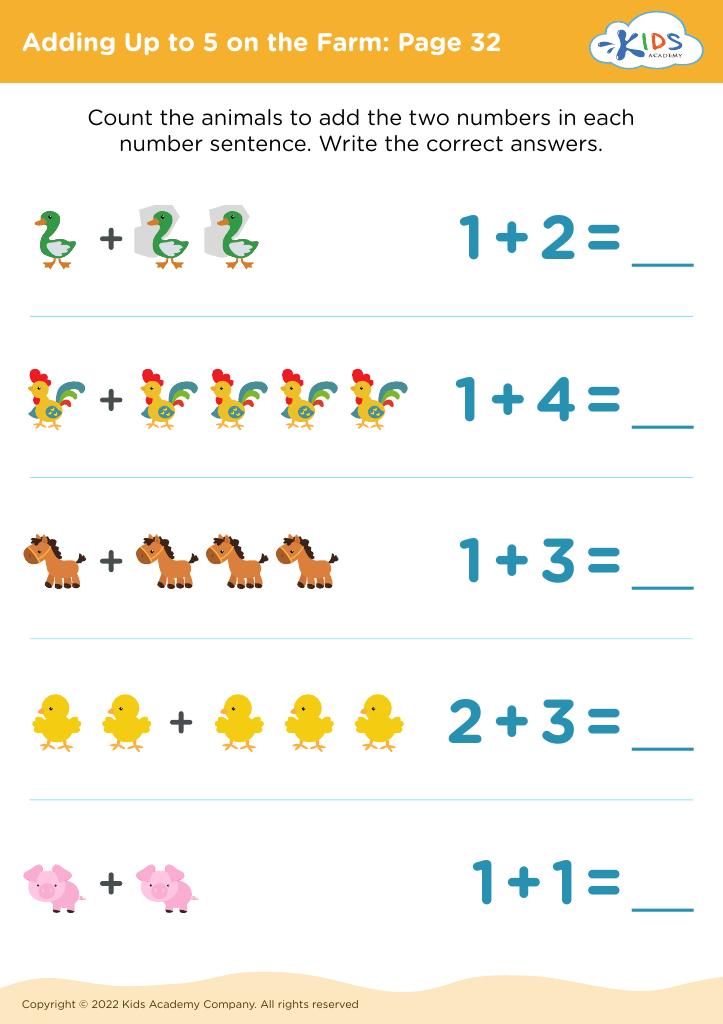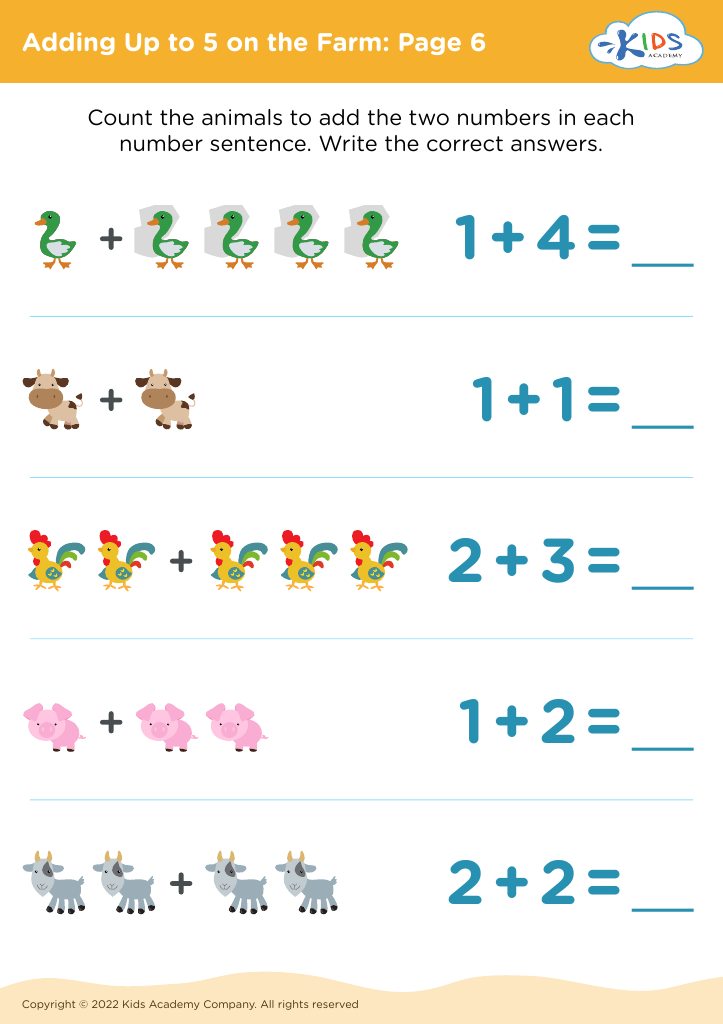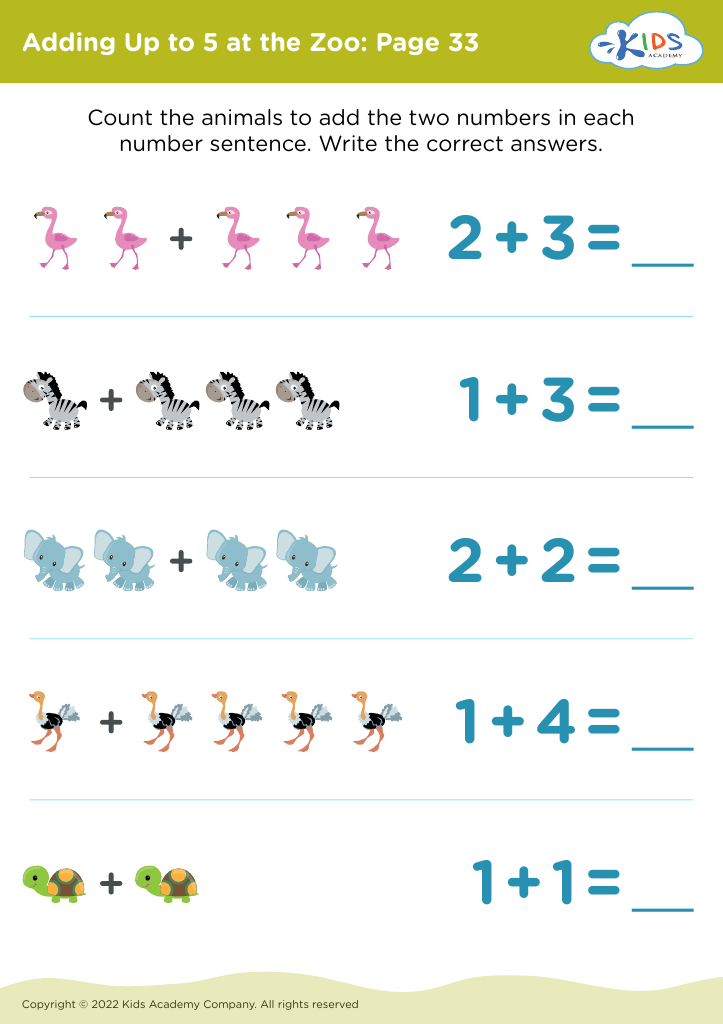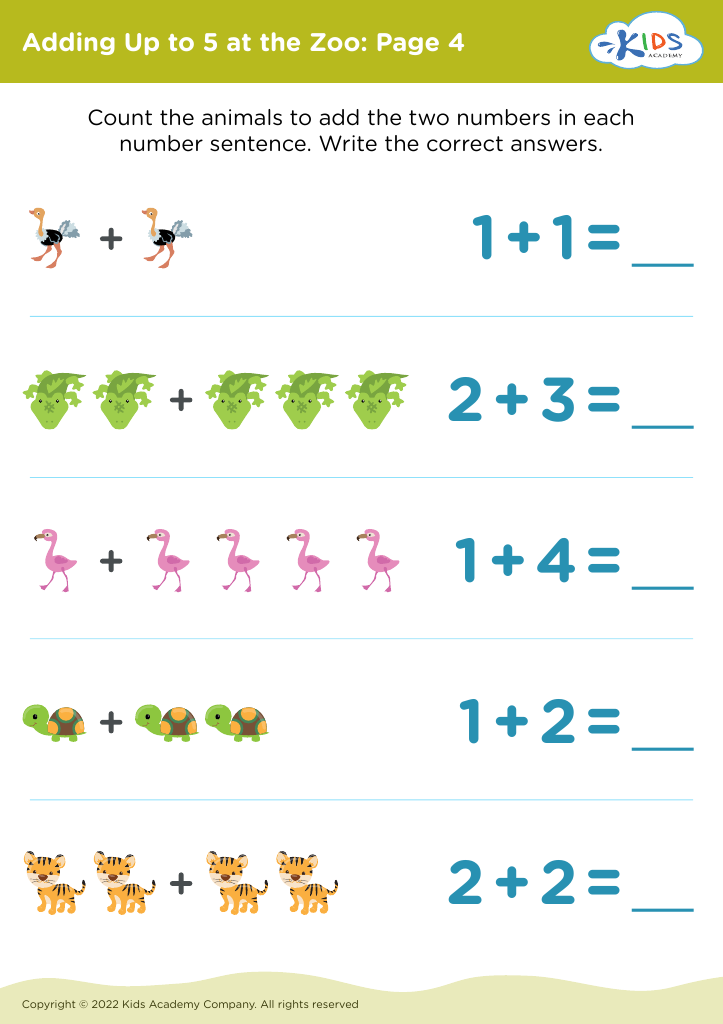Number Recognition Addition Worksheets for Ages 4-6 - Page 2
387 filtered results
-
From - To
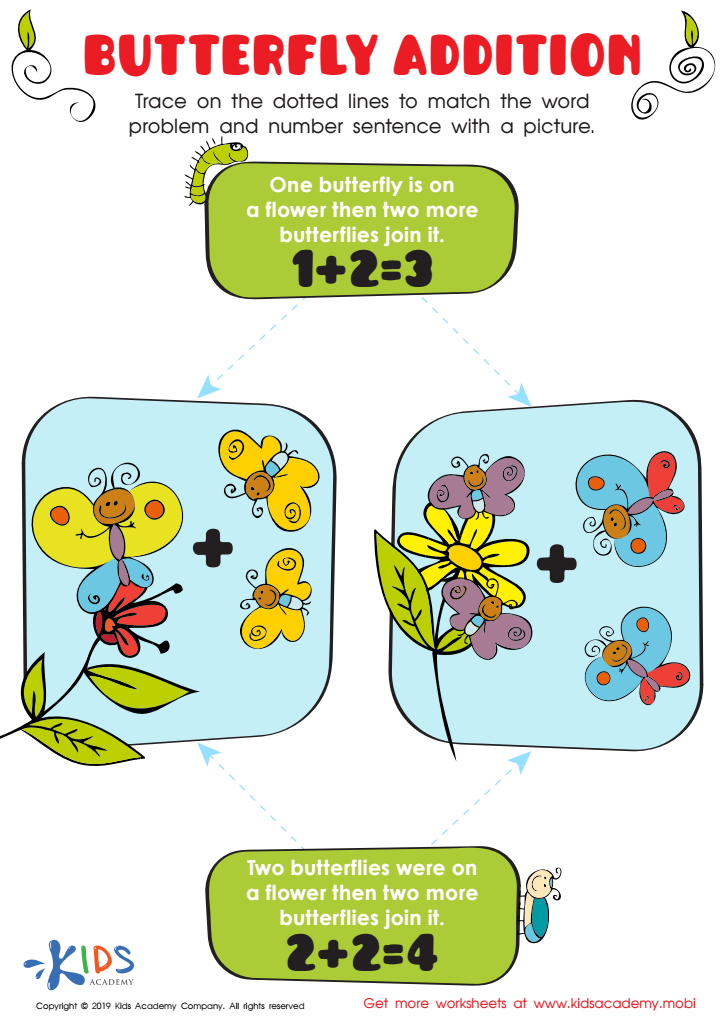

Butterfly Addition Worksheet
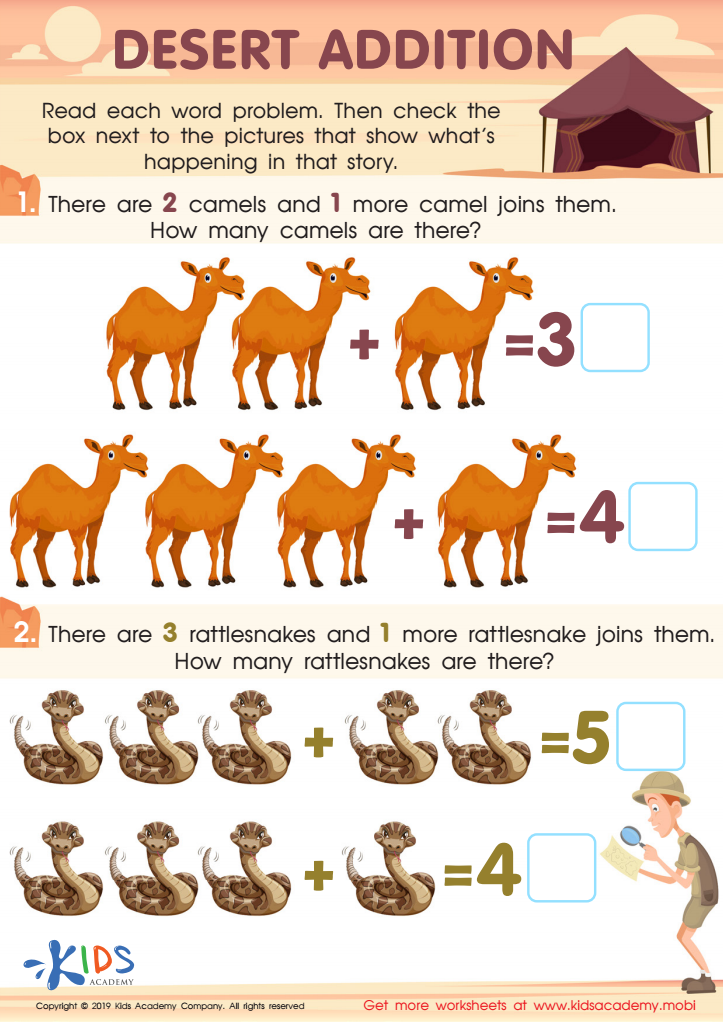

Desert Addition Worksheet
Understanding number recognition and basic addition at an early age is crucial for children's cognitive and mathematical development. For young learners aged 4-6, number recognition is the foundation of their future mathematical learning. Recognizing and understanding numbers help children identify quantities and compare them, which are essential skills for problem-solving in everyday life.
When parents and teachers prioritize number recognition, they are essentially setting children up for success in more complex mathematical concepts. Simple activities like counting objects, recognizing numbers in daily routines, or playing numerical games make learning engaging and meaningful.
Addition, being one of the basic arithmetic operations, introduces children to the concept of combining quantities and understanding simple accumulation and change, fostering logical thinking and reasoning. For example, when a child understands that 2 apples plus 3 apples make 5 apples, they develop an elementary understanding of addition that will support their learning of more complicated mathematics.
By supporting number recognition and addition through fun, age-appropriate activities, caregivers create a positive learning environment that encourages curiosity and confidence in their numerical abilities. These early skills not only benefit future academic pursuits but also aid in everyday problem-solving, critical thinking, and lifelong learning, making early number sense crucial for holistic development.
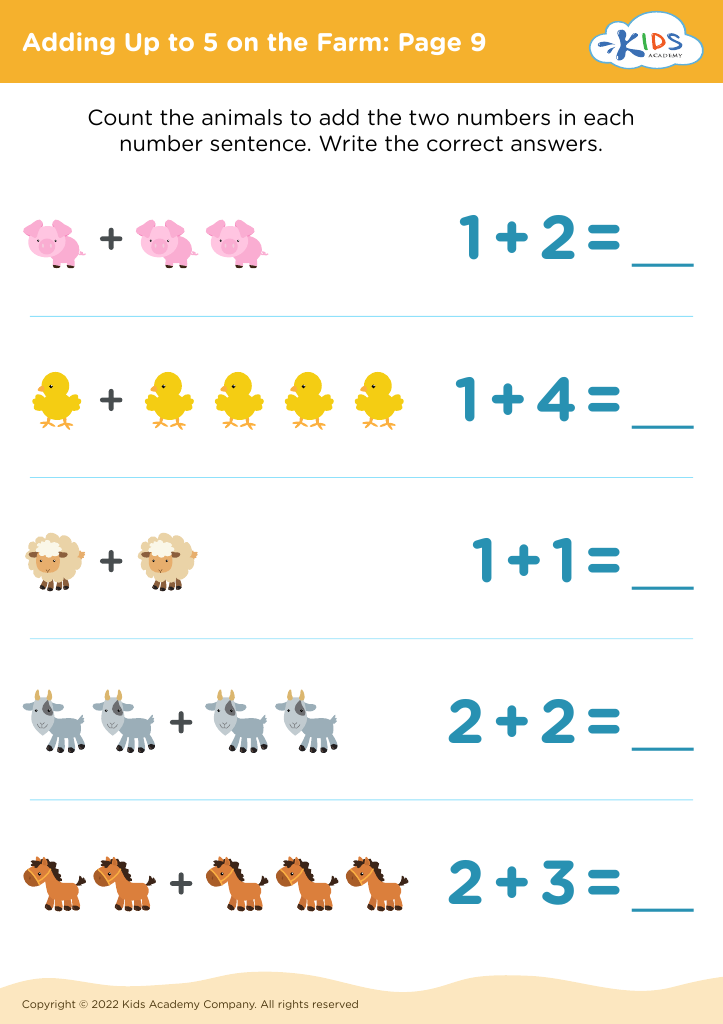
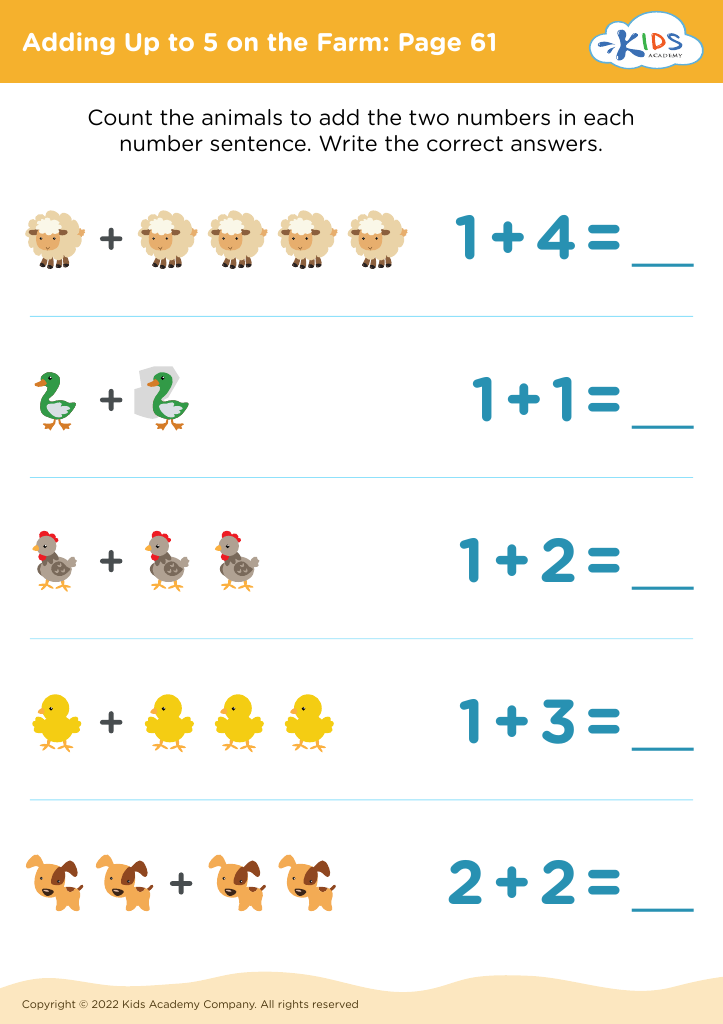
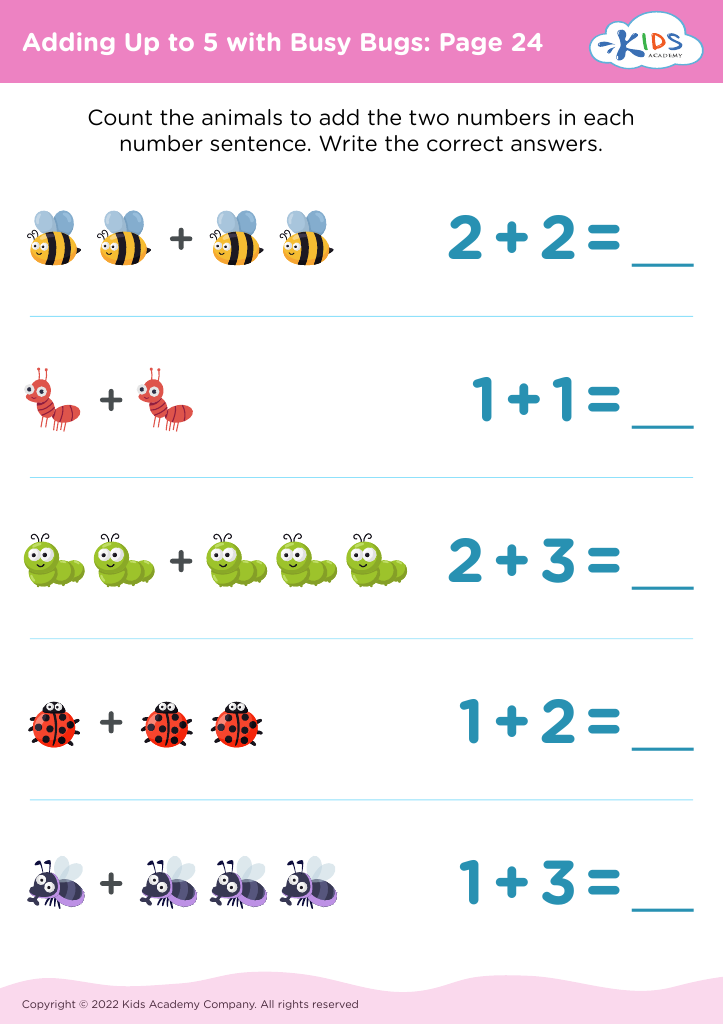
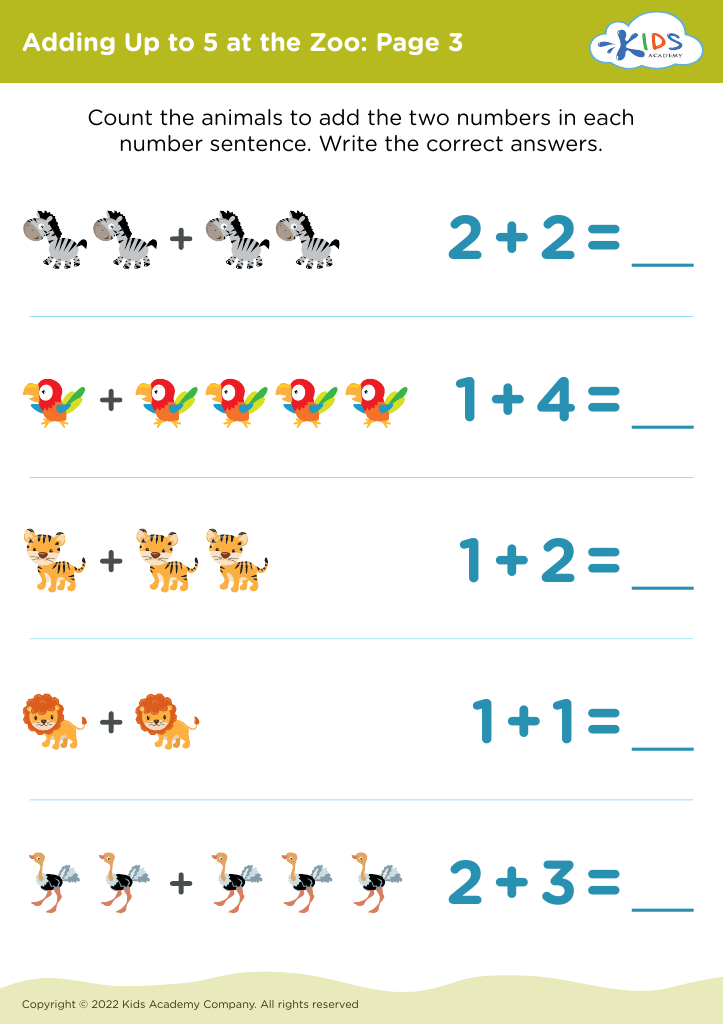
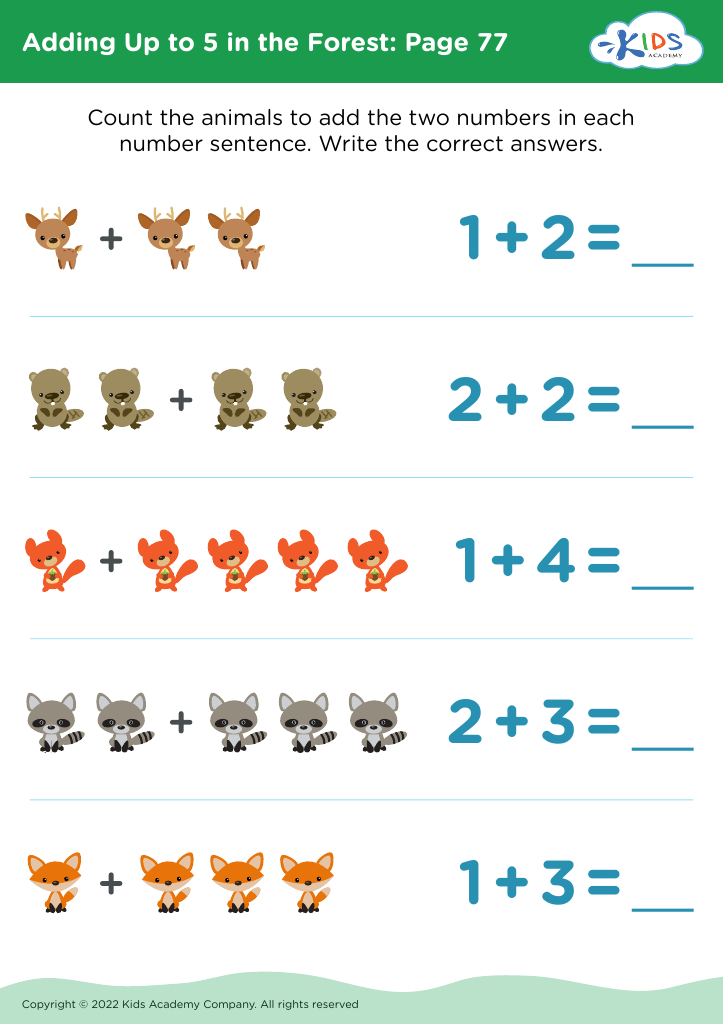
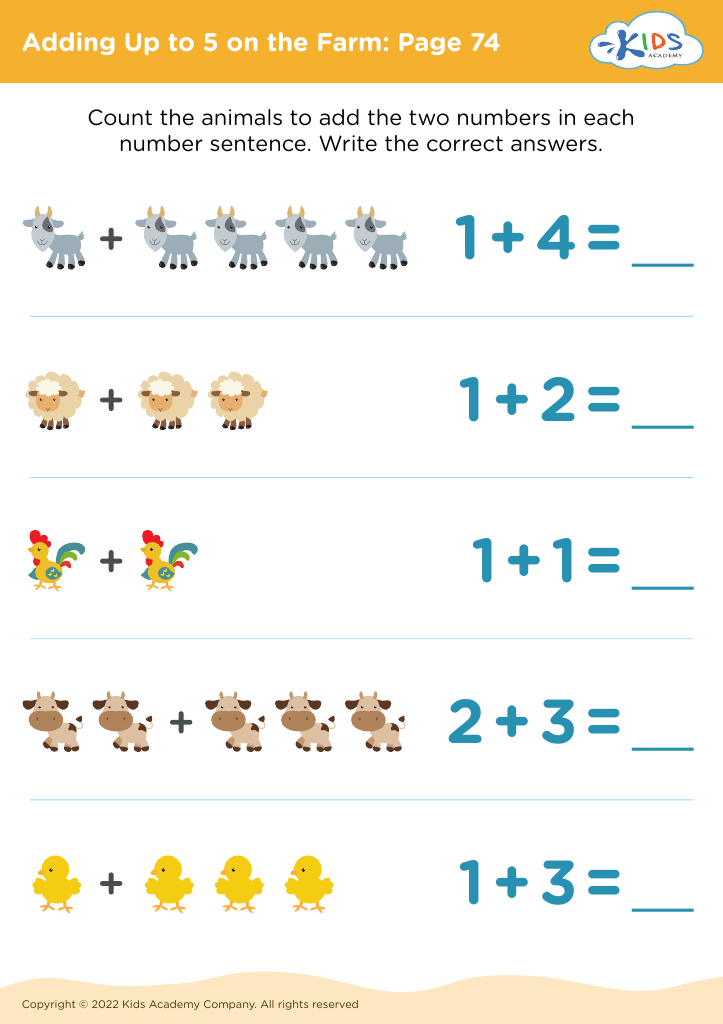
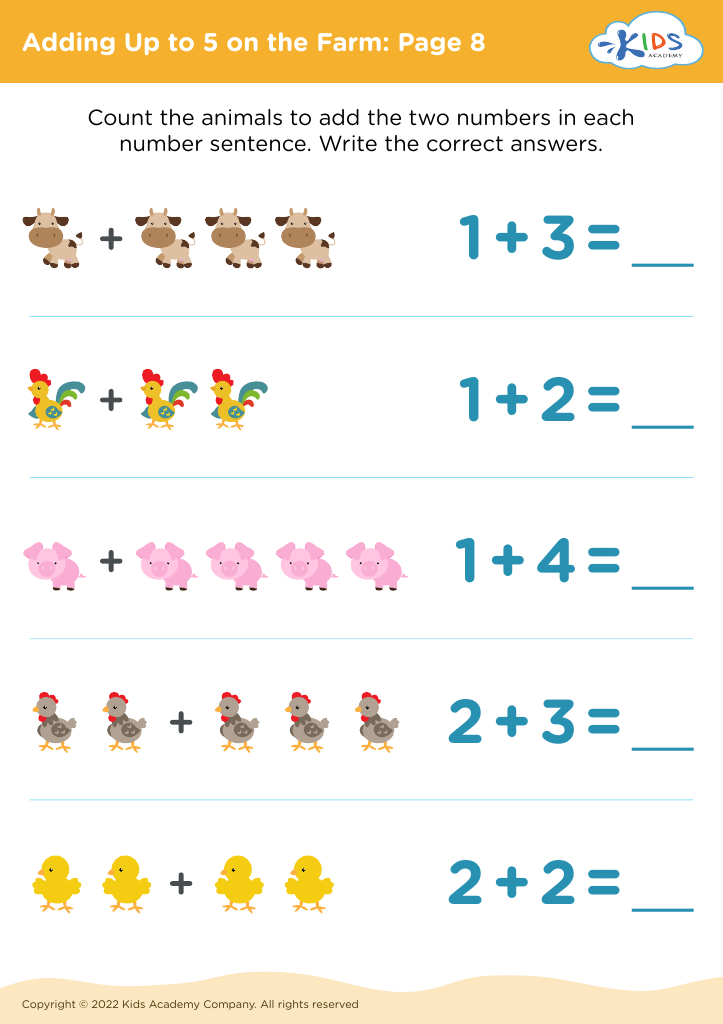
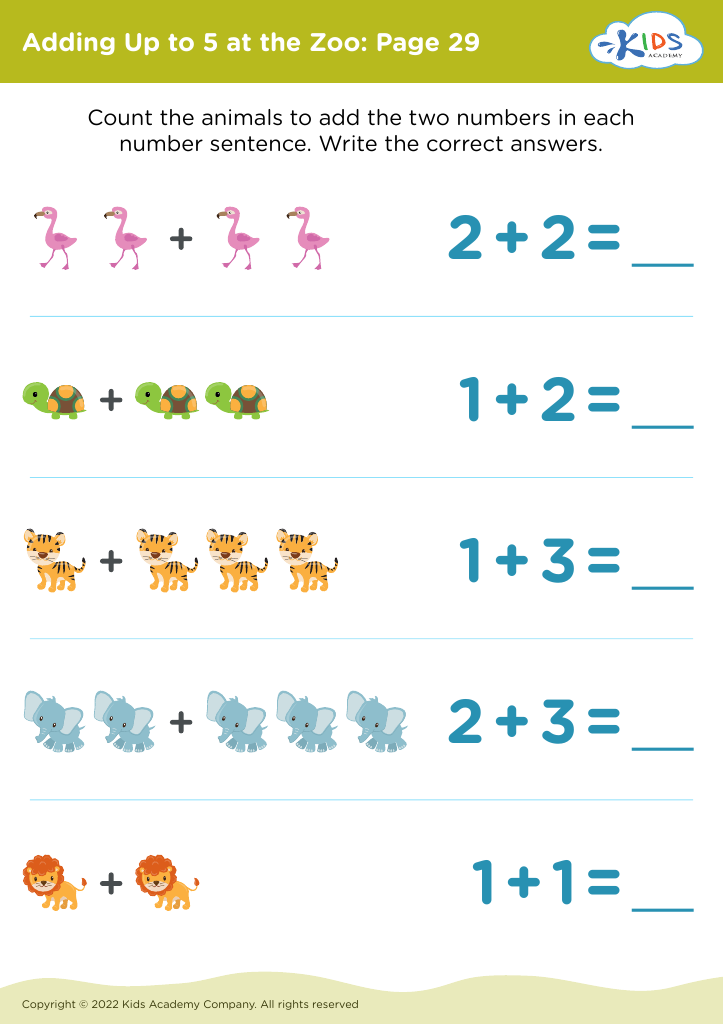
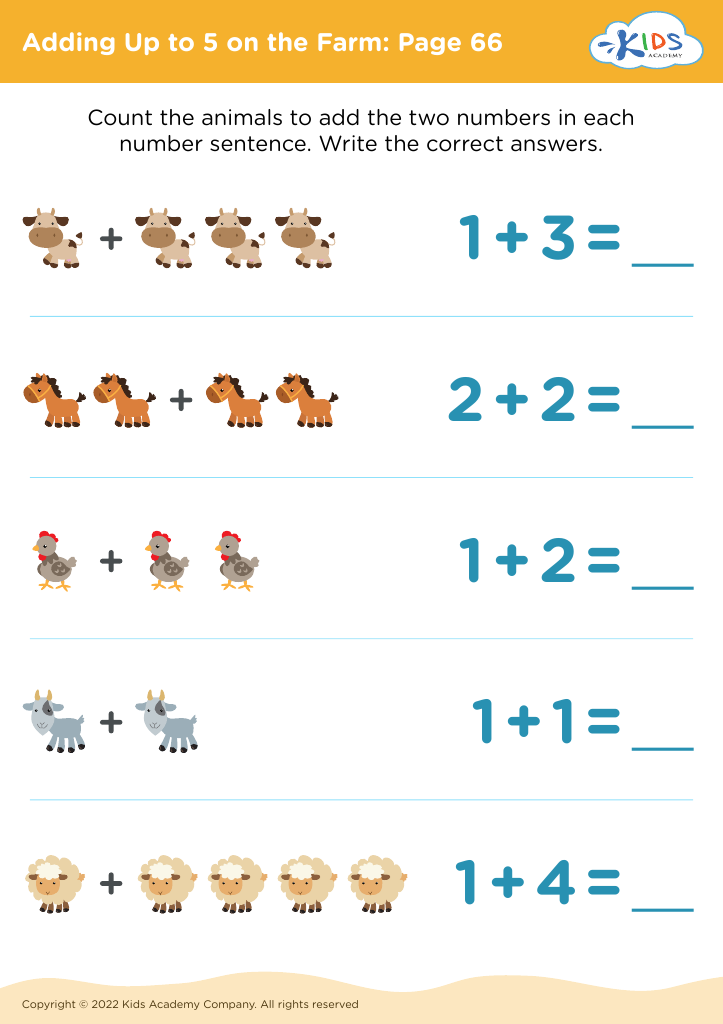
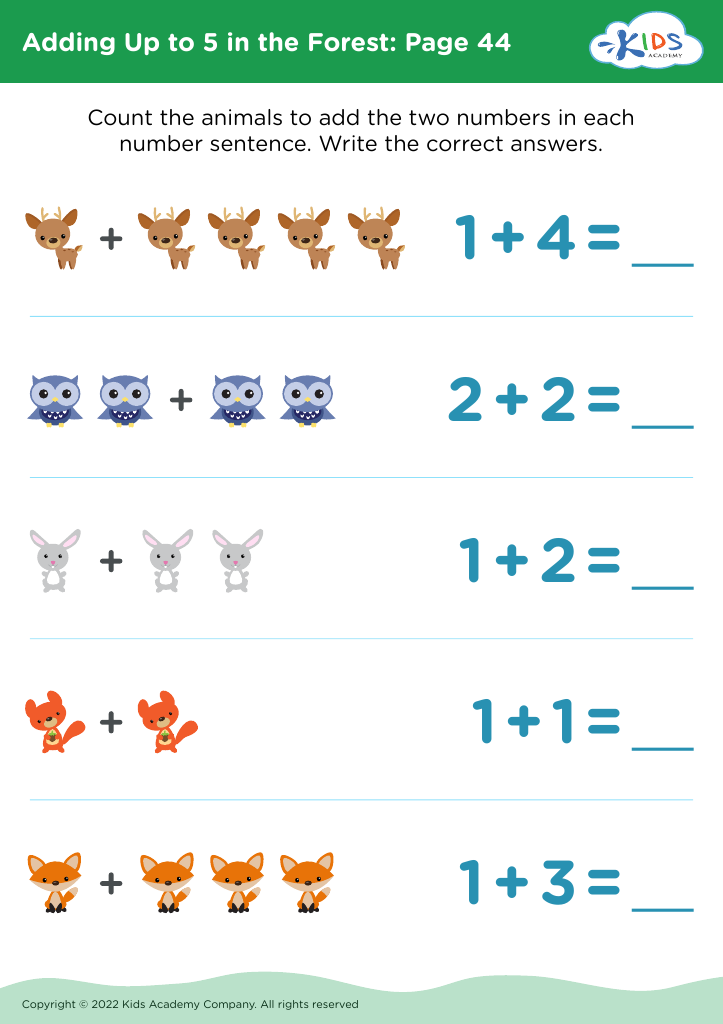
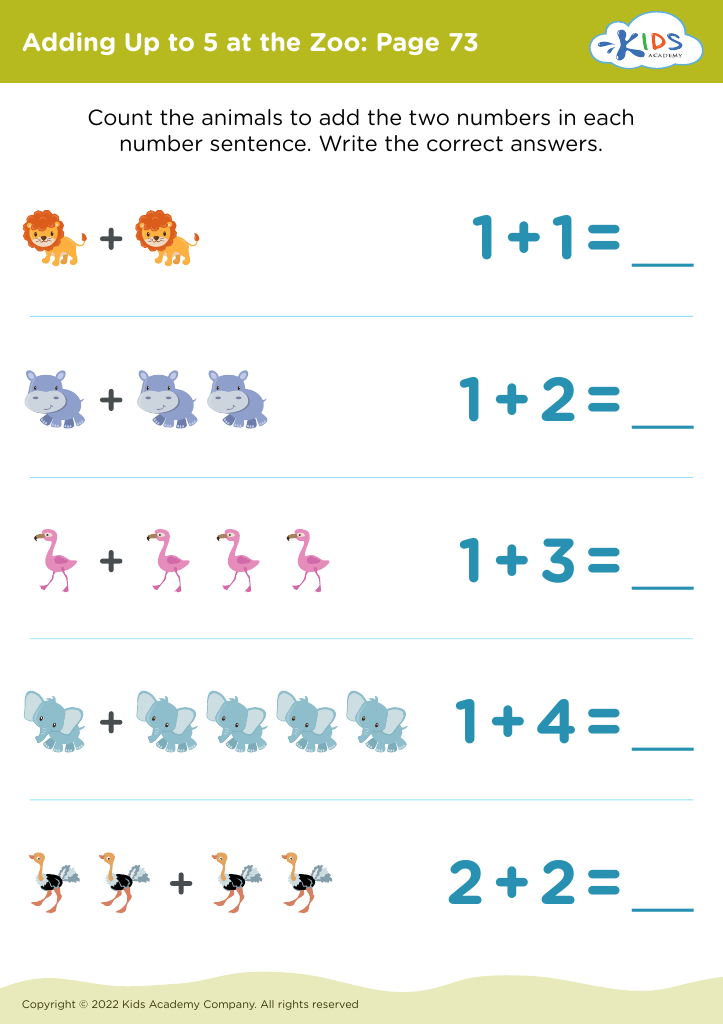
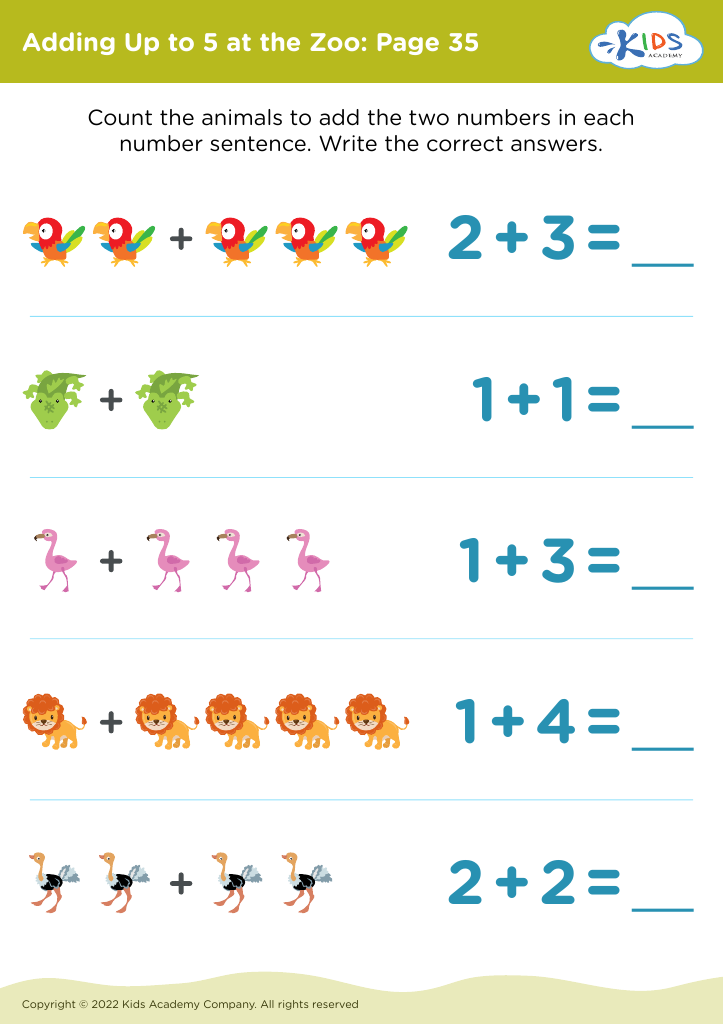
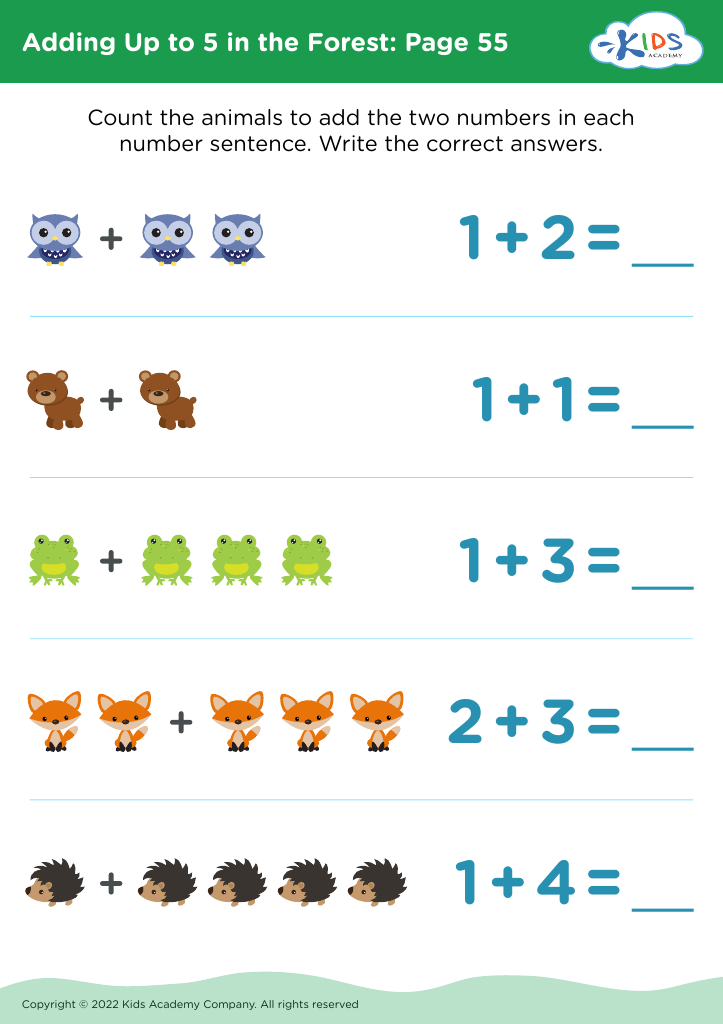

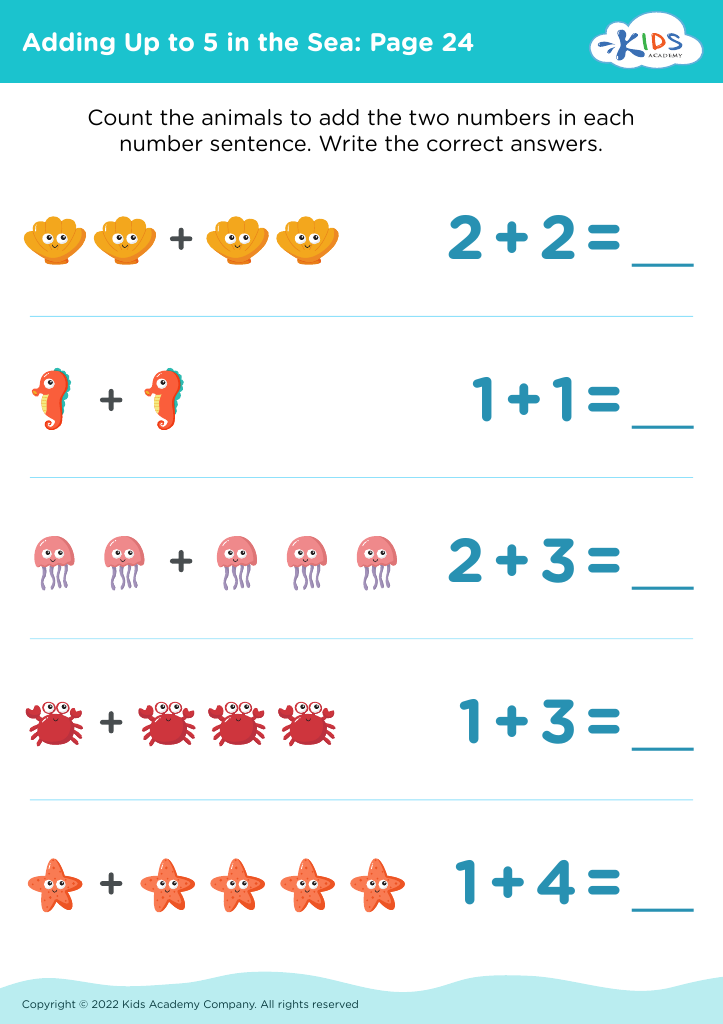
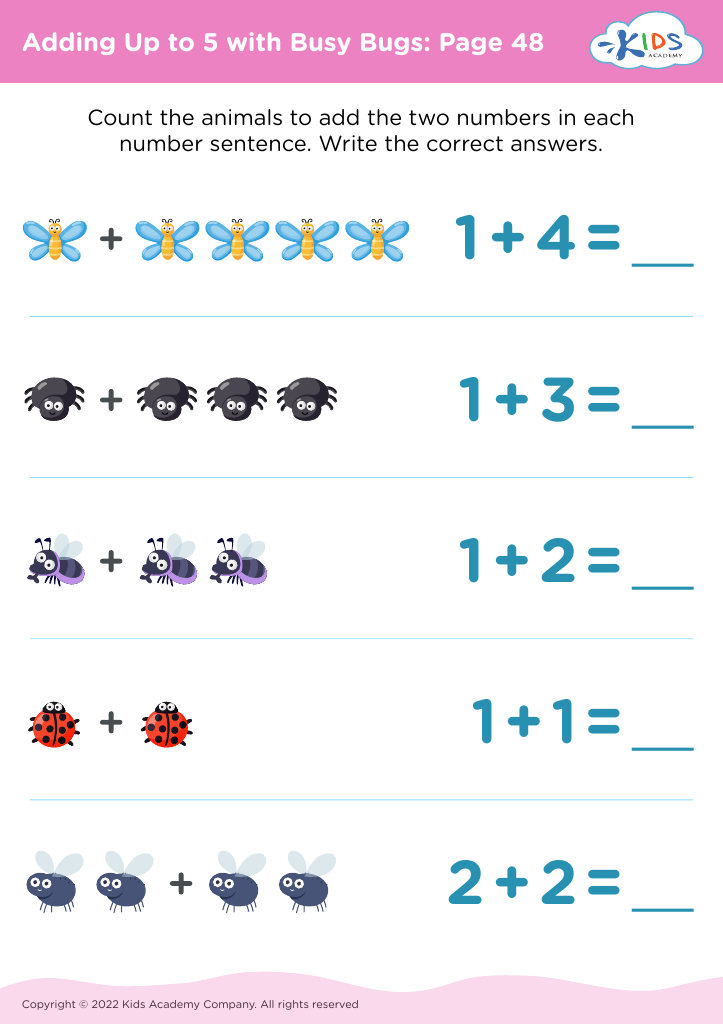
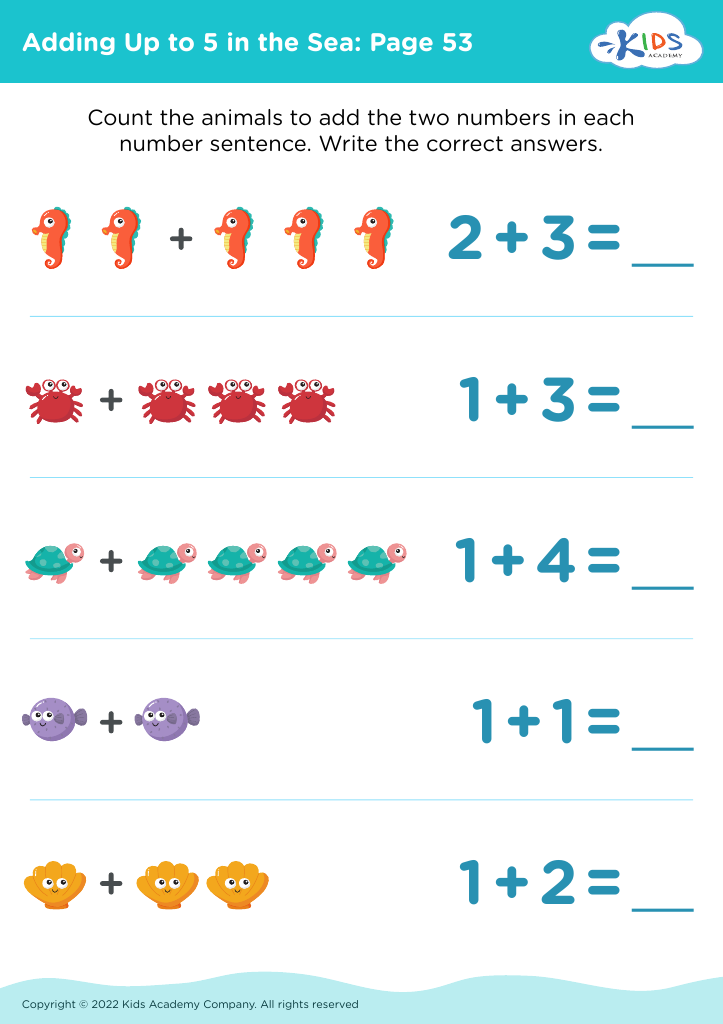
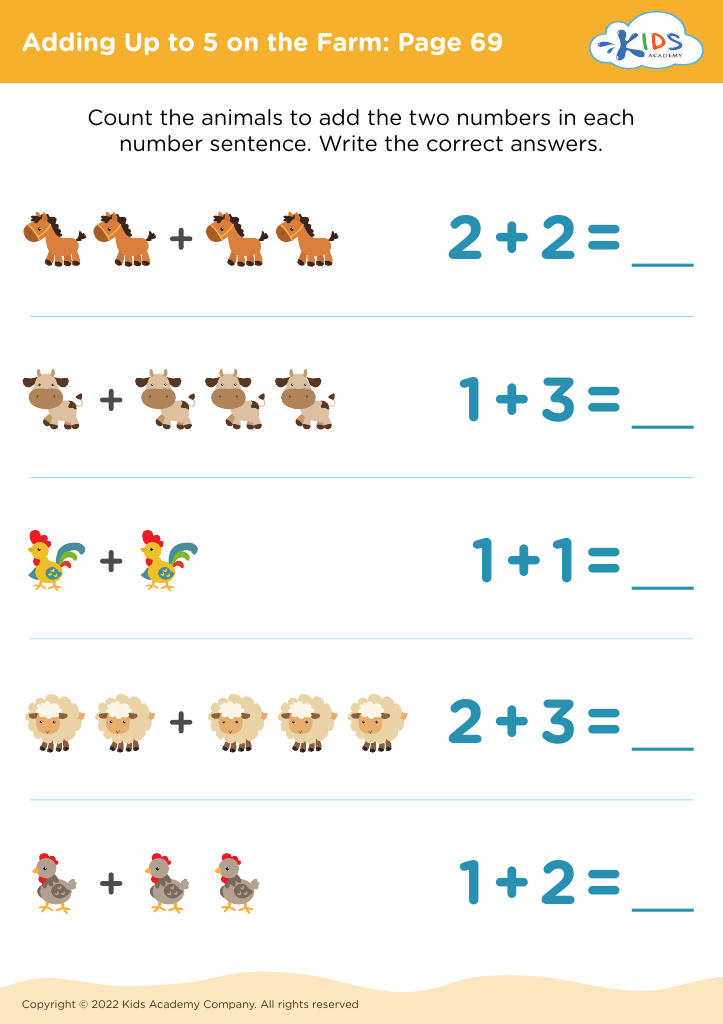

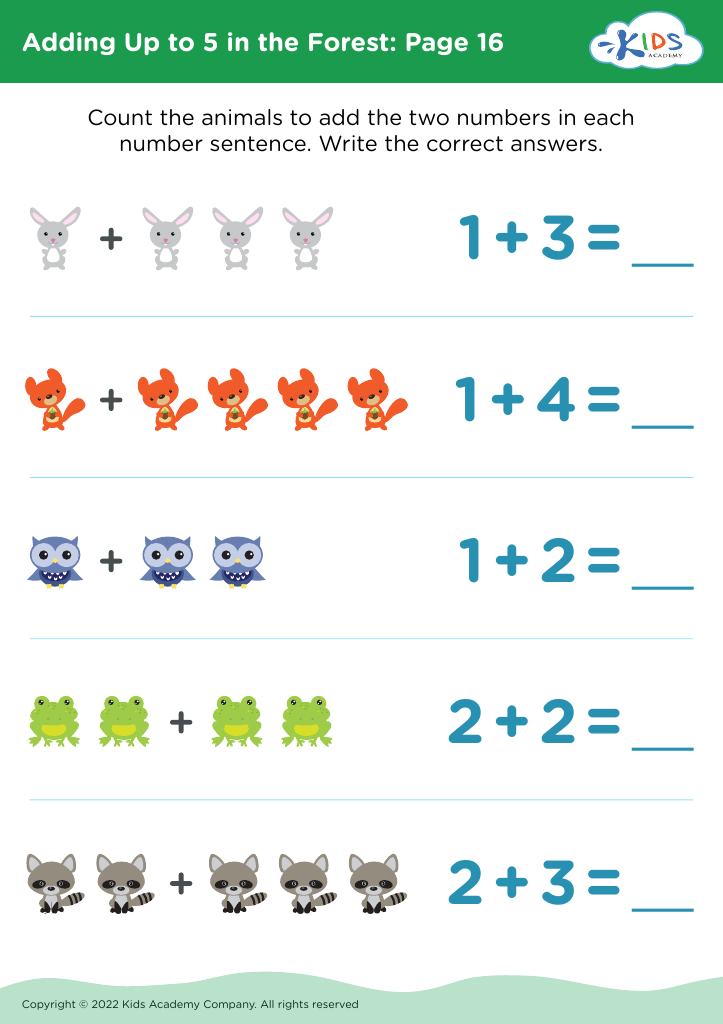
 Assign to My Students
Assign to My Students
